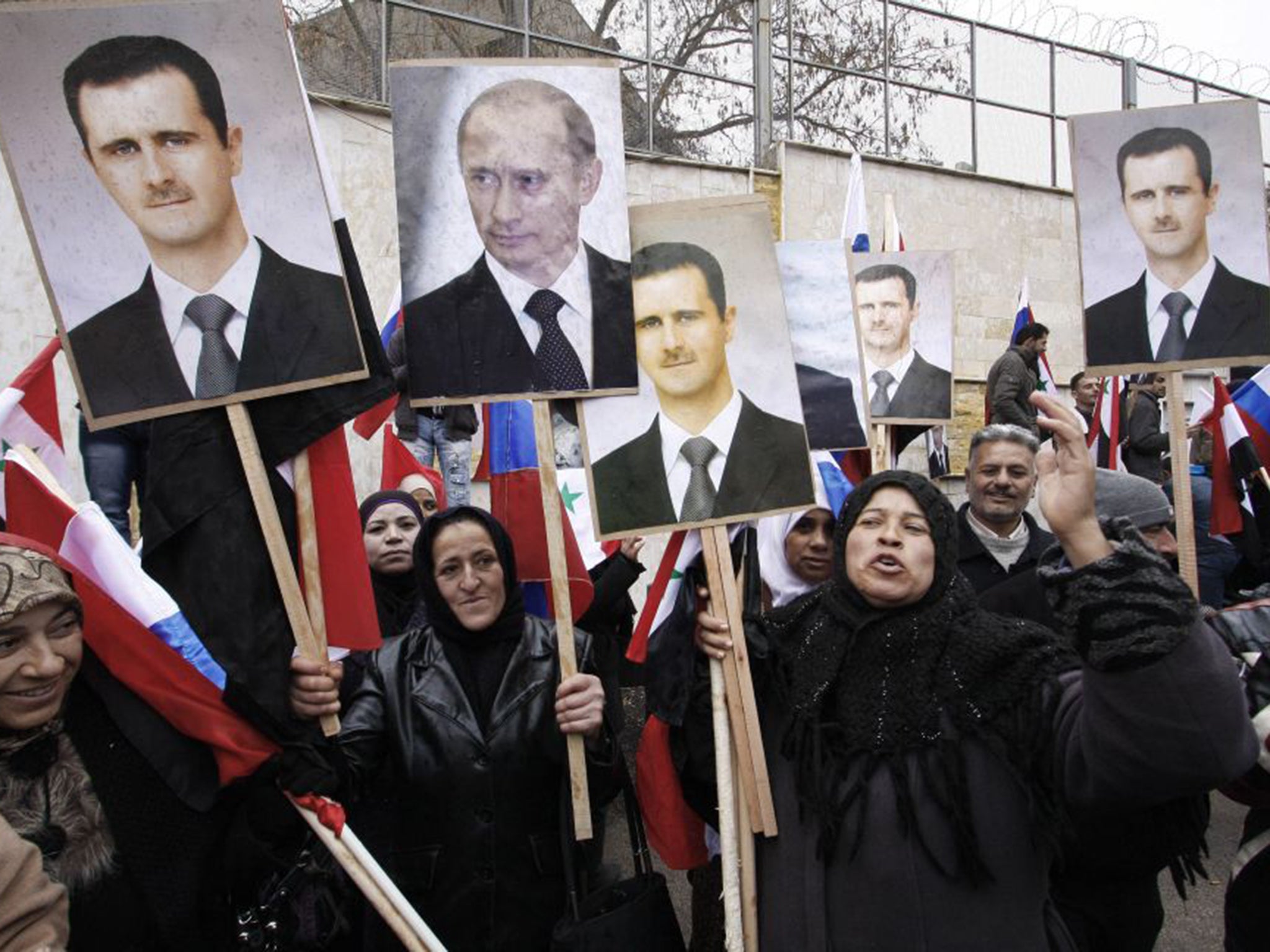Why Russia had to intervene in Syria
Russia's actions against terrorists are already bringing tangible results on the ground, and there is still time for Britain to get its share of the bombing pie, says the Russian Ambassador to the UK

Your support helps us to tell the story
From reproductive rights to climate change to Big Tech, The Independent is on the ground when the story is developing. Whether it's investigating the financials of Elon Musk's pro-Trump PAC or producing our latest documentary, 'The A Word', which shines a light on the American women fighting for reproductive rights, we know how important it is to parse out the facts from the messaging.
At such a critical moment in US history, we need reporters on the ground. Your donation allows us to keep sending journalists to speak to both sides of the story.
The Independent is trusted by Americans across the entire political spectrum. And unlike many other quality news outlets, we choose not to lock Americans out of our reporting and analysis with paywalls. We believe quality journalism should be available to everyone, paid for by those who can afford it.
Your support makes all the difference.Combating international terrorism has long been one of the top priorities of Russia's foreign policy. We have been consistently advocating genuinely global efforts in countering that evil. The fight against terrorism must be conducted on a universal legal basis, starting with the UN Charter. That is why Russia has been unable to join the US-led “global coalition” against Isis. The coalition was established in circumvention of the UN Security Council, and its operations in Syria violate the sovereignty of that country.
The fight against Isis can gain legitimacy only through a UN Security Council mandate. So far the Security Council has been blocked by attempts of a group of states to impose an ideological approach to this direct common threat. The Russian draft resolution on combating terrorist groups in the Middle East, while respecting the independence of countries of the region, remains on the table.
Russia calls for establishing a broad counter-terrorist front. Robustly addressing the threat of Isis and other terrorist groups in the region requires a joint and coordinated action by all those who are already fighting Isis on the ground. Those include the Syrian and Iraqi armies, the Kurdish and Shia militias, and groups of patriotic opposition in Syria. The recent meetings at the UN General Assembly have shown that nobody is enthused at the prospect of destruction of the regional architecture and replacement of secular states with an extremist “caliphate”.
While those diplomatic efforts are gaining momentum, Russia remains the only international player whose military actions in Syria have a legal basis in the form of the request of the government in Damascus. Our air strikes in Syria are solely focused on the elimination of the terrorist threat in that country. As regards the choice of targets, the Russian Defence Ministry has shown an unprecedented openness, providing comprehensive and detailed information on every single operation of the Russian Air Force, on a daily basis. Yet any information that our partners can share regarding potential Isis targets to be hit, will be highly appreciated. So far we haven't had any responses to our respective requests.
Russia's actions are already bringing tangible results on the ground. Several hundred air strikes have allowed to degrade significantly Isis command and logistical infrastructure. This is in stark contrast with the widely recognised and admitted inefficiency of the US-led coalition. After more than a year of bombing, Isis' ranks have swollen, their control over some regions has strengthened, and financial flows have been steady.
As we said, Britain can have its fair share of the bombing pie in Syria. We’d rather know what resources Her Majesty’s Government is willing to commit to this joint endeavour. As year-long bombing campaign by the US-led coalition showed, the lack of healthy competition and mutual control benefited the terrorist. Hopefully, that is changing now. In terms of legitimacy, the British participation could be part of the operation of the quadripartite coalition, acting at the request of Damascus.
The accusations that Isis is a product of Russia's “insistence” on keeping President Assad in power are absolutely untenable. What is true is that the weakening of the Syrian authorities caused by the outside interference has led to vacuum and vast zones of anarchy throughout the country, that were filled by terrorists. The so called moderate opposition was led to believe that a Western military intervention would engineer a “regime change”, that somebody would fight for them. Consequently, as civil war raged, polarisation left little room for those misled groups.
Indeed, while solving the problem of terrorism, we certainly must facilitate the launch of a UN-led focused and comprehensive political process based on the Geneva communiqué of 30 June 2012. Defeating terrorists will help create the right conditions for a lasting political settlement. It will be the best way to put an end to the civil conflict and achieve а “peace without victory”, something that the Entente powers couldn’t stomach in 1918. After all, it is peace all the Syrians are longing for.
Alexander Yakovenko is the Russian Ambassador to the United Kingdom
Join our commenting forum
Join thought-provoking conversations, follow other Independent readers and see their replies
Comments